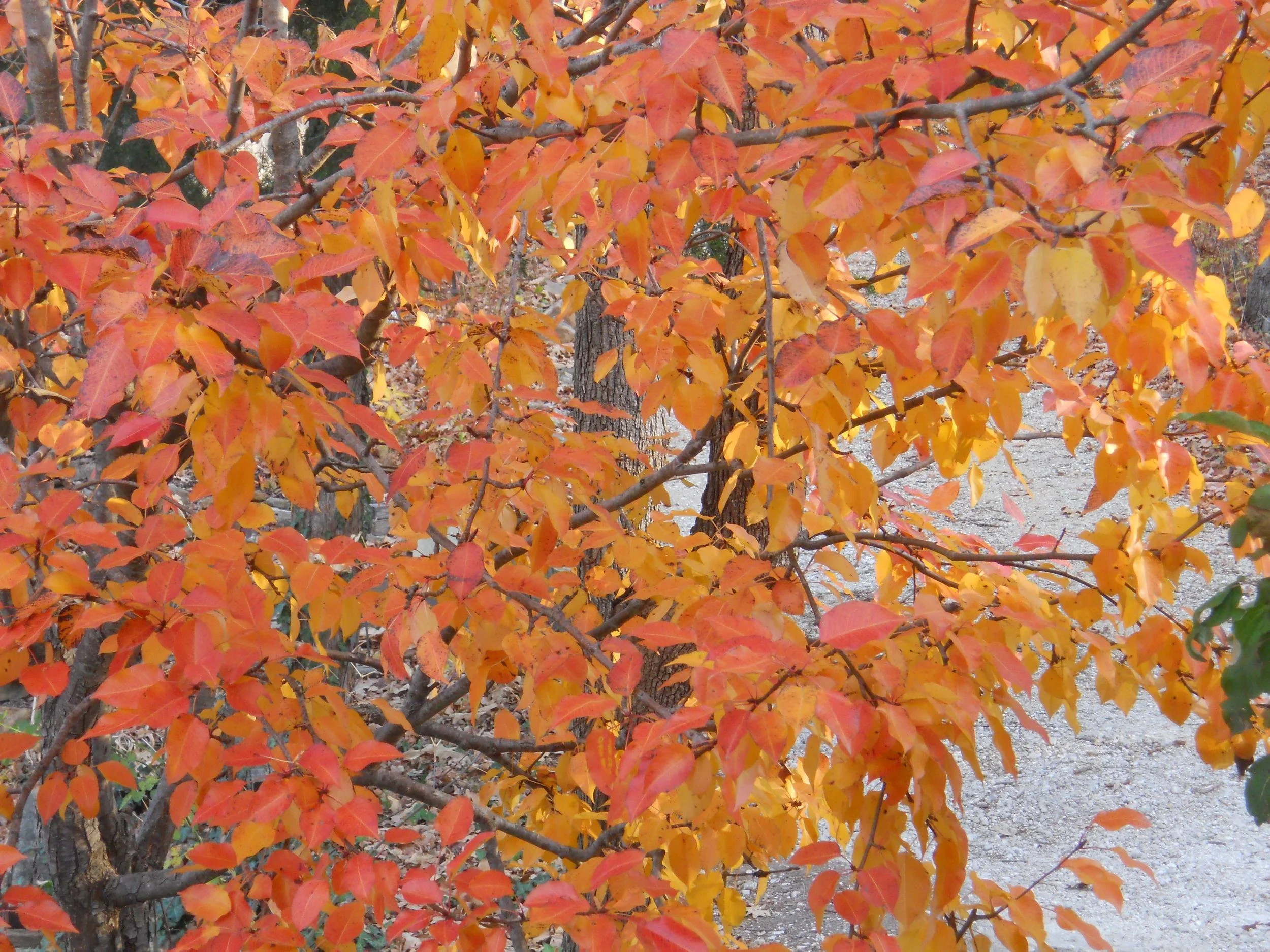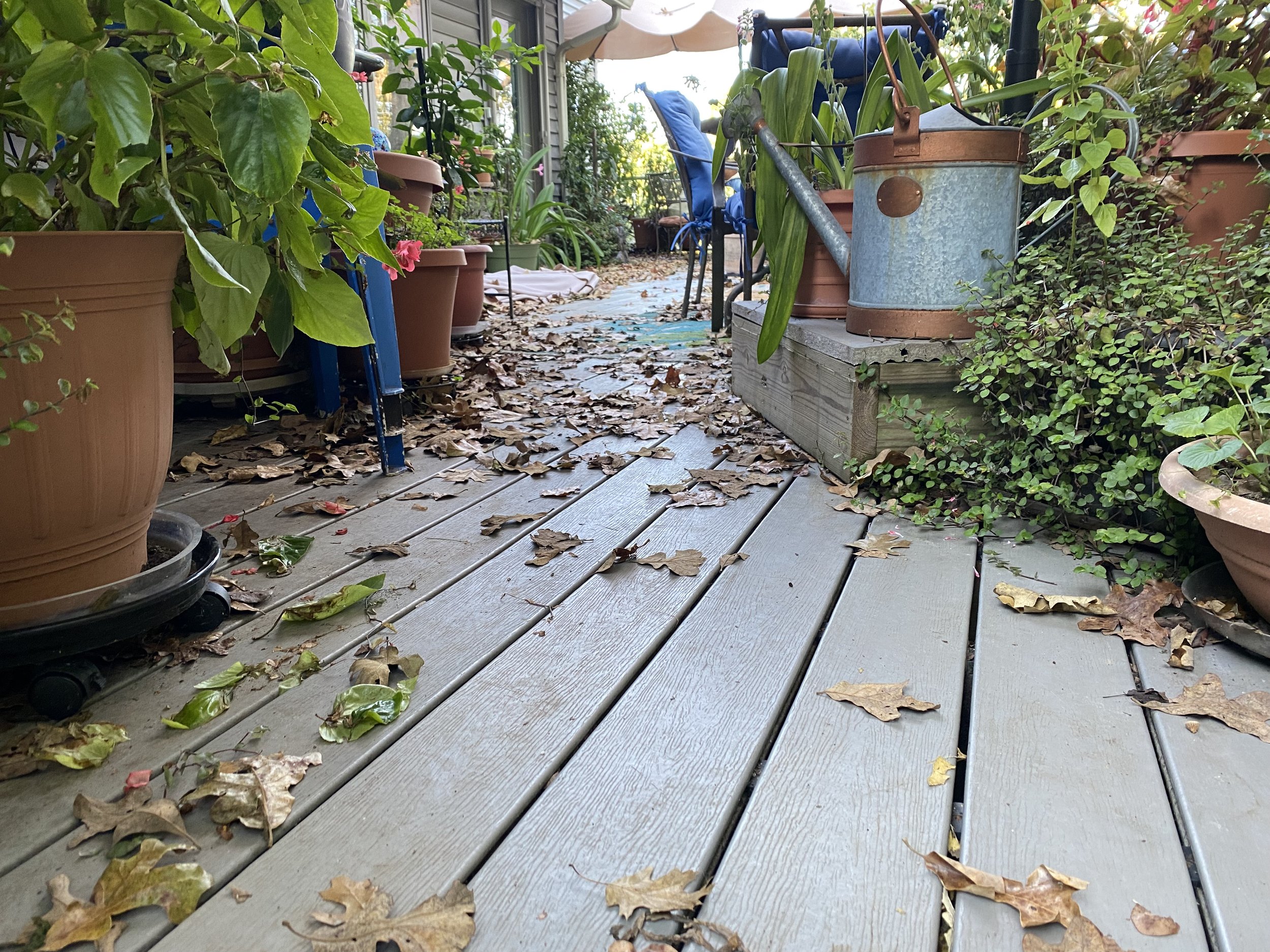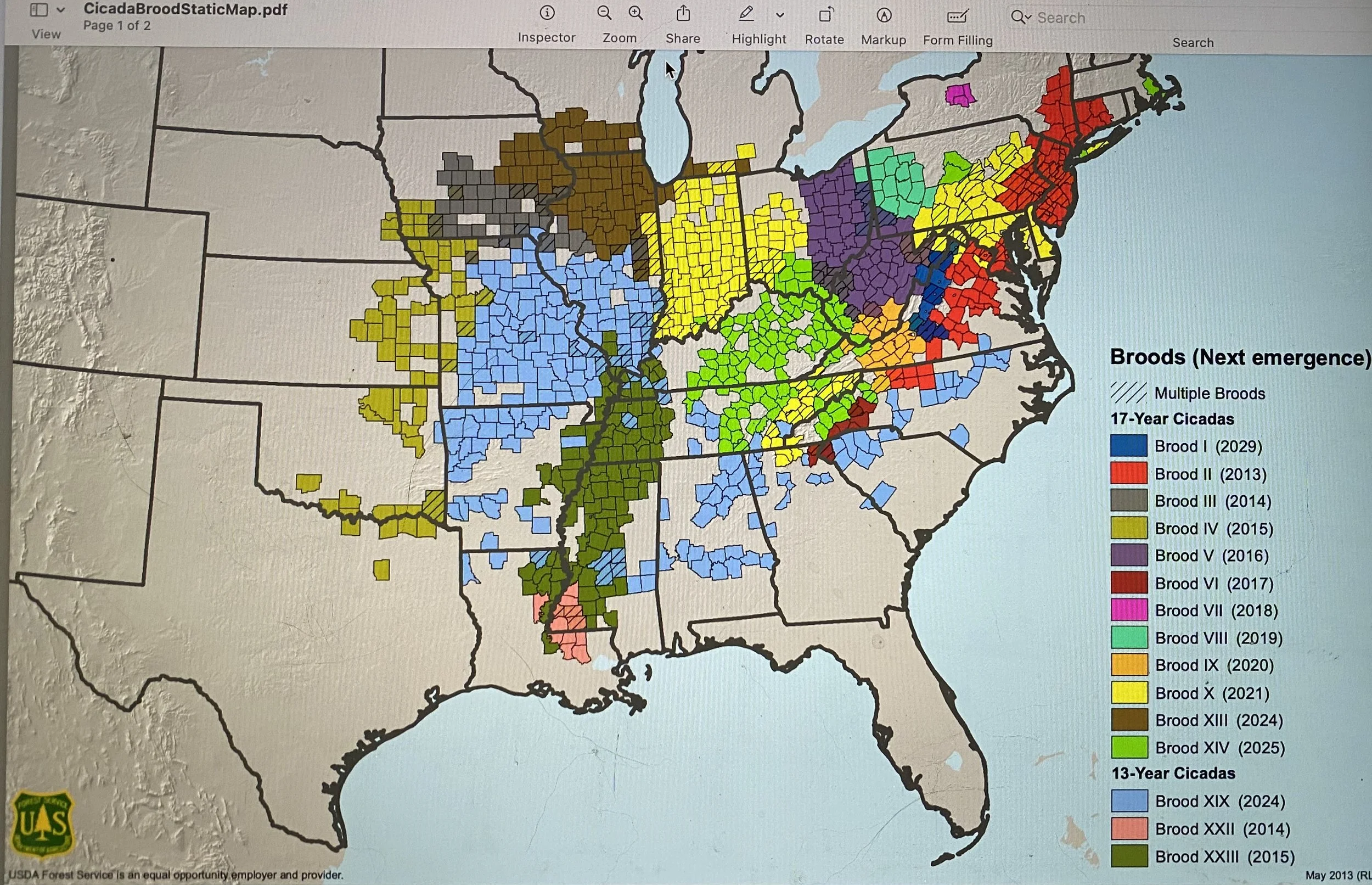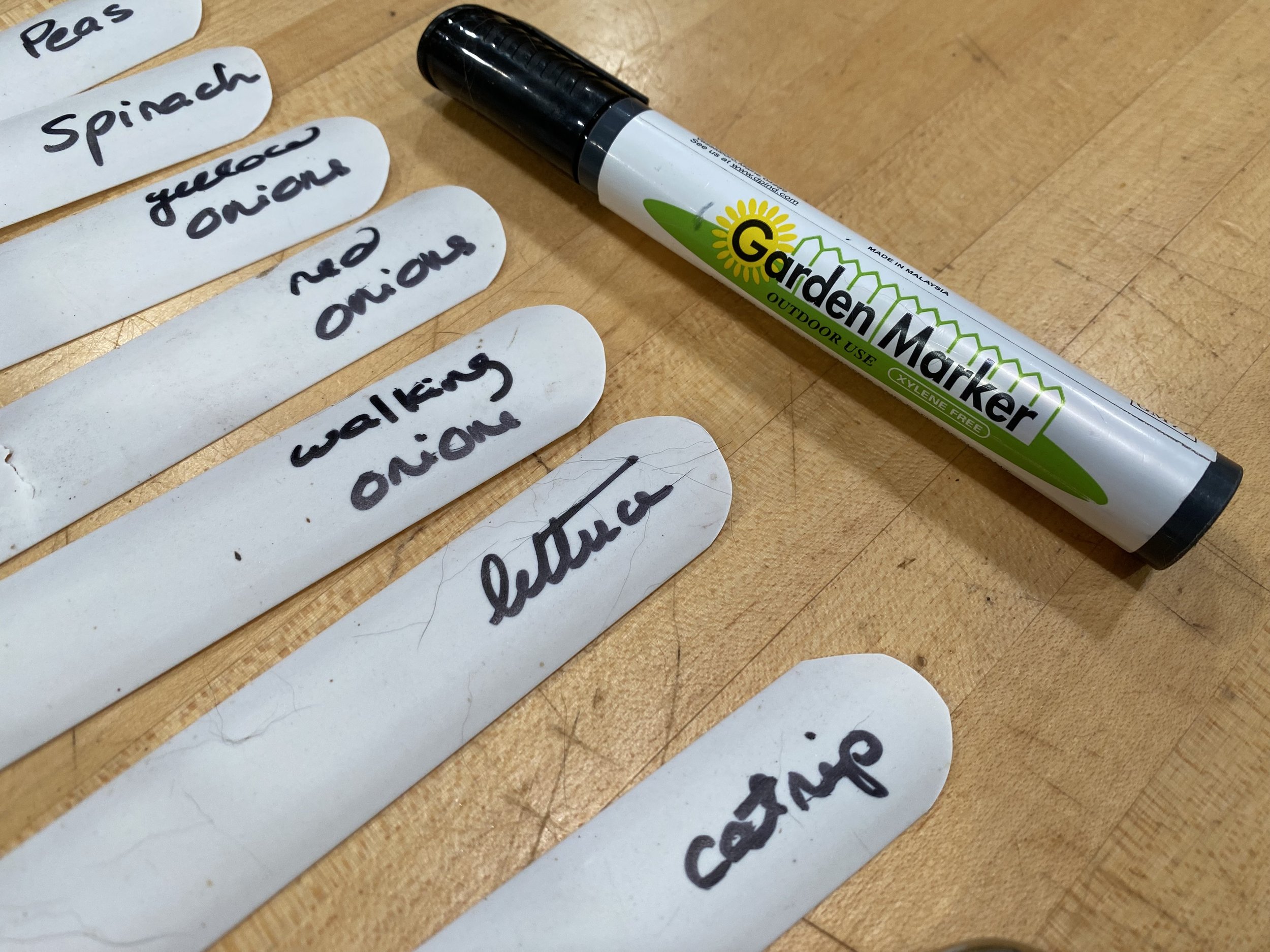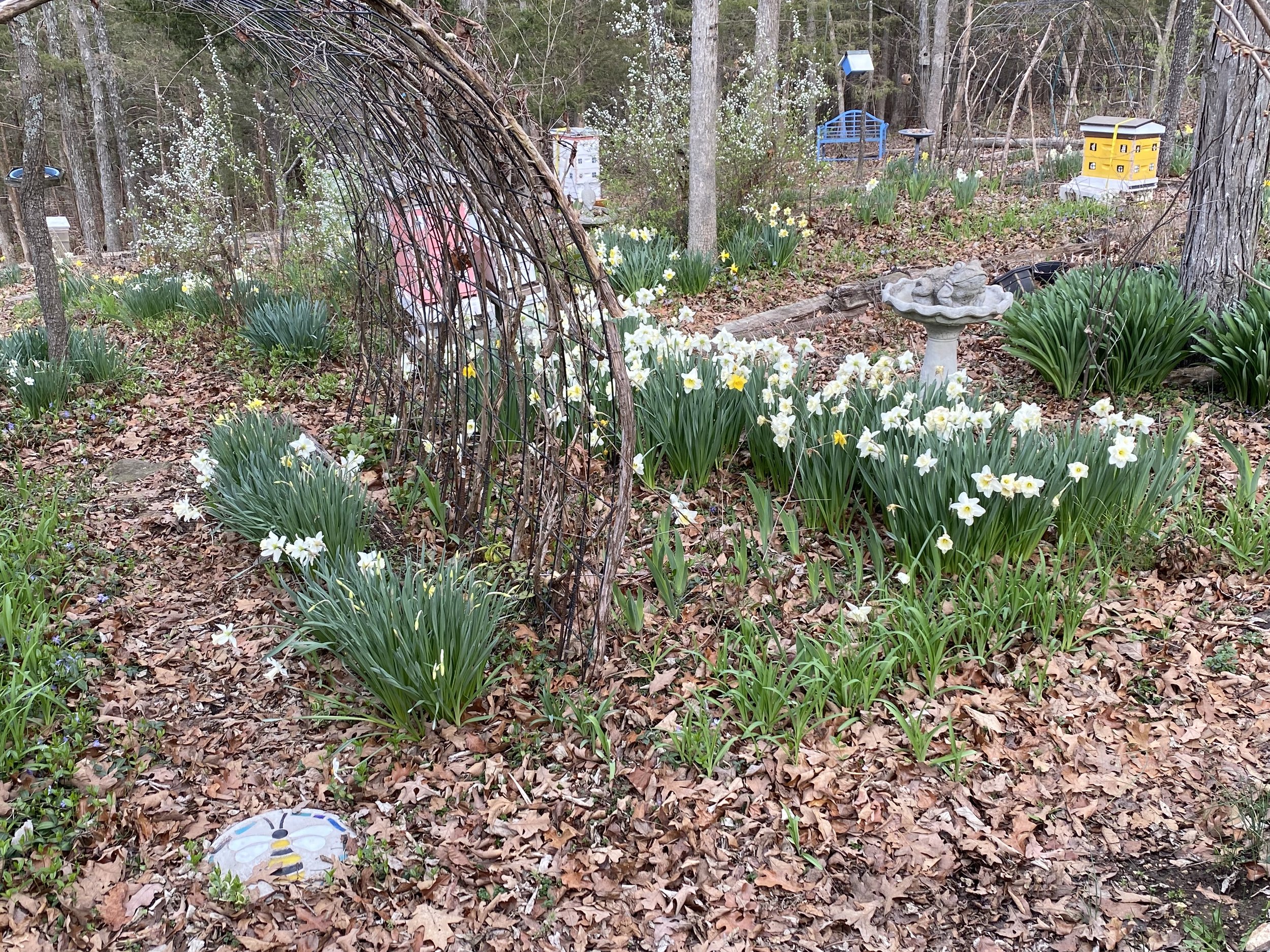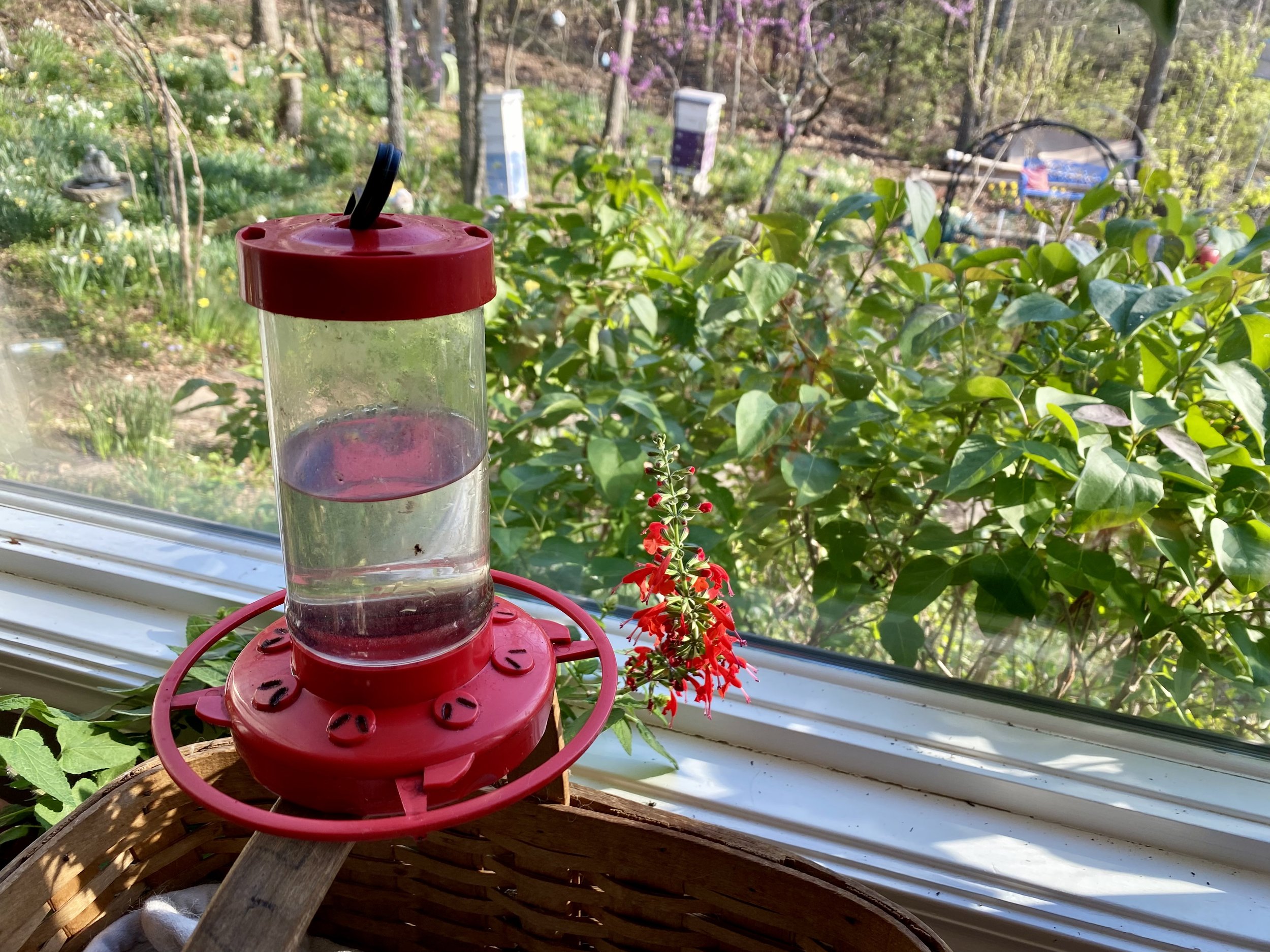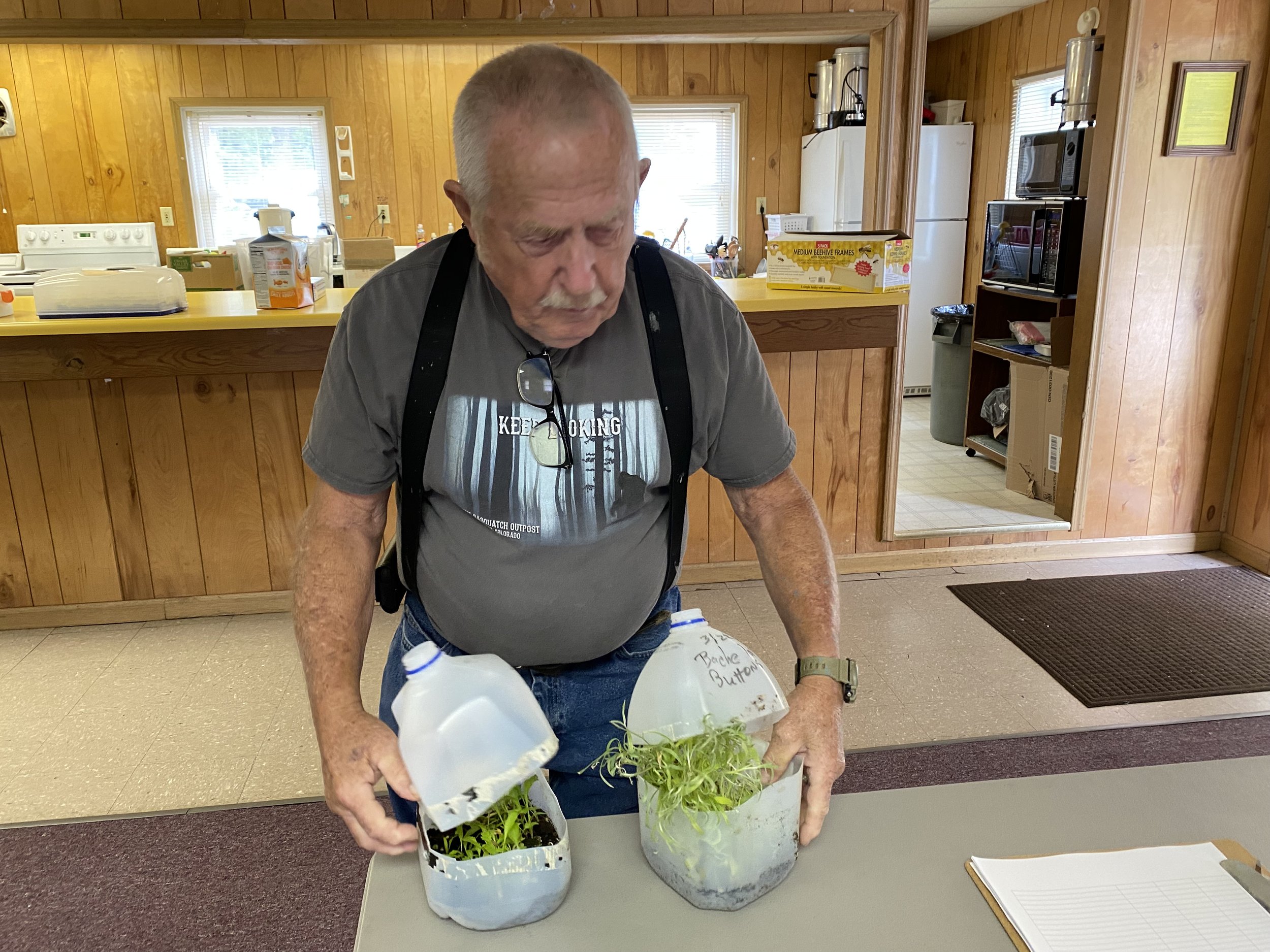Why Not Rake Leaves
/weather conditions including drought can cause leaves to fall early late summer. (charlotte ekker wiggins photo)
Why Not Rake Leaves
For years I've let my oak and hickory tree leaves fall on my hillside garden. Some years I've even hauled in bags of chopped leaves for additional mulch. Leaves are not only excellent winter cover but they are home to a number of beneficial garden residents who otherwise would not survive our Midwest cold winter weather.
Not convinced? I know, raking up fall leaves is a common practice but that doesn't make it right. Hopefully by now we understand those manicured lawns are insect and pollinator wastelands so we need to reconsider how we manage our gardens.
There are other benefits of not raking up leaves:
Habitat for Wildlife: Fallen leaves provide a natural habitat for various insects, amphibians, and small mammals during winter months. Raking them up can disrupt these ecosystems and reduce biodiversity in your yard.
Soil Enrichment: When left to decompose, leaves can break down and enrich the soil with valuable organic matter. This improves soil structure, moisture retention, and nutrient content, benefiting your garden or lawn.
Time and Energy Savings: Raking leaves can be a time-consuming and physically demanding task, especially if you have a large yard with many trees. Allowing leaves to naturally decompose can save you both time and energy.
Cost Savings: You can save money on bags or disposal fees associated with collecting and disposing of leaves. Instead, you can use leaves as a free source of mulch or compost for your garden.
Environmental Impact: Burning leaves releases carbon dioxide and other pollutants into the atmosphere, contributing to air pollution and climate change. Composting or mulching leaves is a more environmentally friendly option.
Erosion Control: A layer of leaves can help protect the soil from erosion, particularly on slopes or hilly areas. They act as a natural barrier against heavy rain and wind.
Aesthetic Appeal: Some people find the natural look of leaves on the ground to be aesthetically pleasing. It can create a cozy and rustic atmosphere in your yard during the fall season.
Fertilization: As leaves decompose, they release nutrients back into the soil, acting as a natural fertilizer for your plants and trees.
However, there are situations where raking leaves may be necessary, such as when leaves are excessively thick and could smother growth; or when they pose a safety hazard, such as blocking drainage systems. If you have to collect leaves, use them for mulch, composting, or as a natural weed barrier in your garden beds.
Think it about this way. Trees are delivering leaves to you. Use them and help wintering garden residents at the same time!
For more tips on gardening, beekeeping, cooking and easy home decor, subscribe to my weekly Garden Notes.
Charlotte
